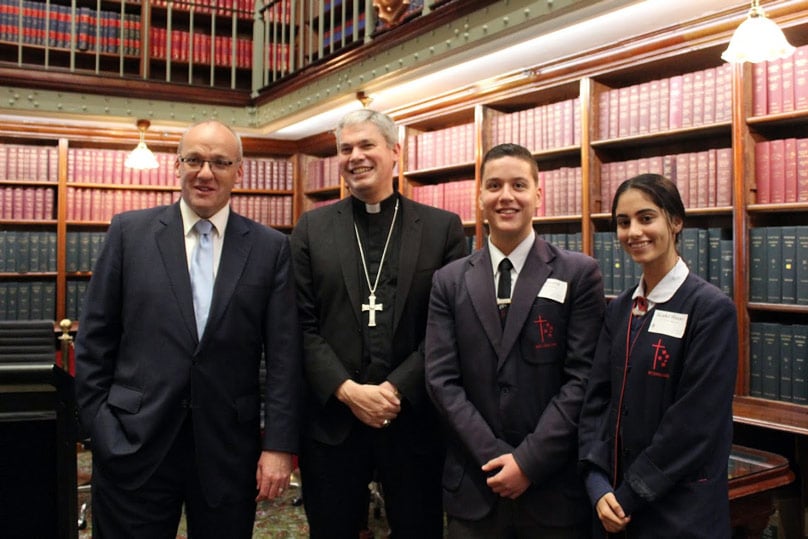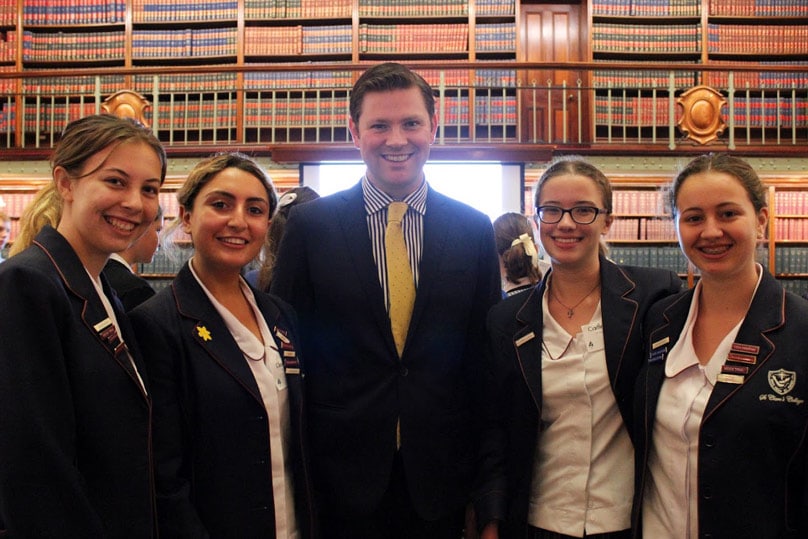
“I may not agree with what you say, but I would die defending your right to say it,” is phrase often used in discussion and debates surrounding freedom of speech.
It is commonly attributed to the philosopher Voltaire, though it seems more likely that the phrase was placed on Voltaire’s lips by English author Evelyn Beatrice Hall in a 1906 book The Friends of Voltaire. Whatever the origins of this phrase, it is a thought – an attitude – of real open discussion that presently seems much under attack, particularly with regards to representatives of organised religion engaging in public debate.
Margaret Somerville, now Professor of Bioethics at The University of Notre Dame Australia, Sydney, in an opinion piece on the ABC’s Religion and Ethics website made reference to an alleged statement from Andrew Denton that the Church should withdraw from the public debate on euthanasia. The Sydney Morning Herald of 10 August 2016, reports Denton as making reference to “the theocracy hidden inside our democracy.” The implication of such a statement is that there something sinister in people of faith holding public office; that people of faith in public office might respond to the demands of their conscience within that role.
The Church’s position on the matter though is quite clear. Bishop Richard Umbers states the position aptly: “The secular viewpoint is not a neutral stance before the transcendent. In a truly pluralist society there will be a range of voices, and one of the chief contributions of the Catholic Church is to give a distinctively religious perspective to a debate.” Unfortunately, for many Catholics, a clear understanding of not only the Church’s right to be involved in public debate, but also its responsibility to do so, is not well understood, or defended.
On 10 March, Notre Dame academics, along with Bishop Umbers (Auxiliary Bishop of the Archdiocese of Sydney, and Adjunct Professor at Notre Dame) sought to inform up-and-coming school leaders from schools across the Archdiocese of their own and the Church’s need and right to be involved ‘in the public square’ through a workshop day entitled: A Public Faith.
The workshop was held in the Jubilee Room of NSW Parliament House with around 50 Yr 10-11 students from across the Archdiocese in attendance. Throughout the day, eight Members of Parliament came to have morning tea or lunch with the students and staff. Workshop topics included:
1. On the importance of speaking freely – Dr Renee Köhler-Ryan (Notre Dame School of Philosophy & Theology);
2. Freedom of conscience and of religion in Australia – Professor Michael Quinlan (Notre Dame School of Law);
3. Comparing religious freedom under the Australian and US Constitutions – Associate Professor Keith Thompson (Notre Dame School of Law);
4. Thinking about religion-state relations around the world – Associate Professor John Rees (Notre Dame School of Arts & Sciences); and
5. How to spot a killer argument – Bishop Richard Umbers.
Joshua Hamilton, a Year 10 student from Waverley College, commented: “I have never been to such an enthralling symposium. I was sitting in a room with some great minds. I was fascinated by watching, hearing, evaluating and analysing the numerous and diverse perspectives, provided by a range of students, teachers, and academics.”

James Richie, also from Waverley College, said: “The workshop day was extremely informative and helped me reaffirm and also challenge my beliefs. I particularly liked the emphasis on law when talking about various freedoms (conscience, speech and association) that are enjoyed in Australia, and the logical consequence of ‘no platforming’ when applied to free speech. The speakers were easily approachable and happy, even very interested in, debating ideas with us”.
Br Anthony Crook CSMA, who organised the event along with Louise Zavone from the Sydney Catholic Schools’ Office, said that the goal of the day was to assist future leaders from our Catholic schools to appreciate that if a society truly values freedom of speech then people of religious backgrounds, and the groups they belong to, cannot be barred from engaging in public discussion, otherwise we only have ‘selective free speech’.
“It was wonderful”, said Ms Zavone, “that we could in this place of free speech – the NSW Parliament – discuss such important matters on the topic and be joined by people (MPs, for whom it is) their daily practice in House.”
